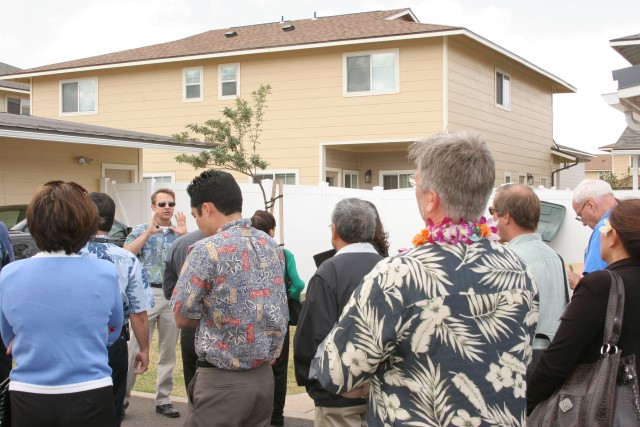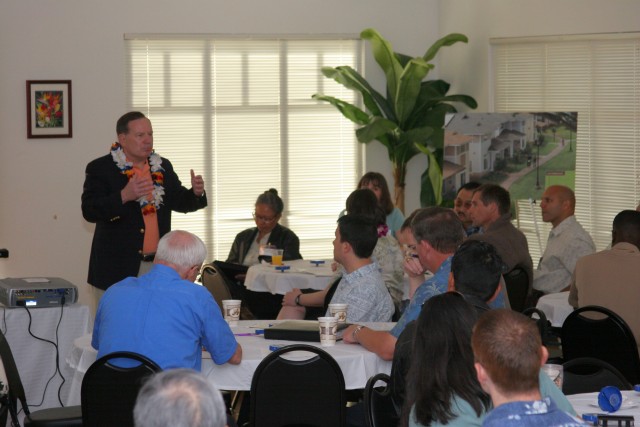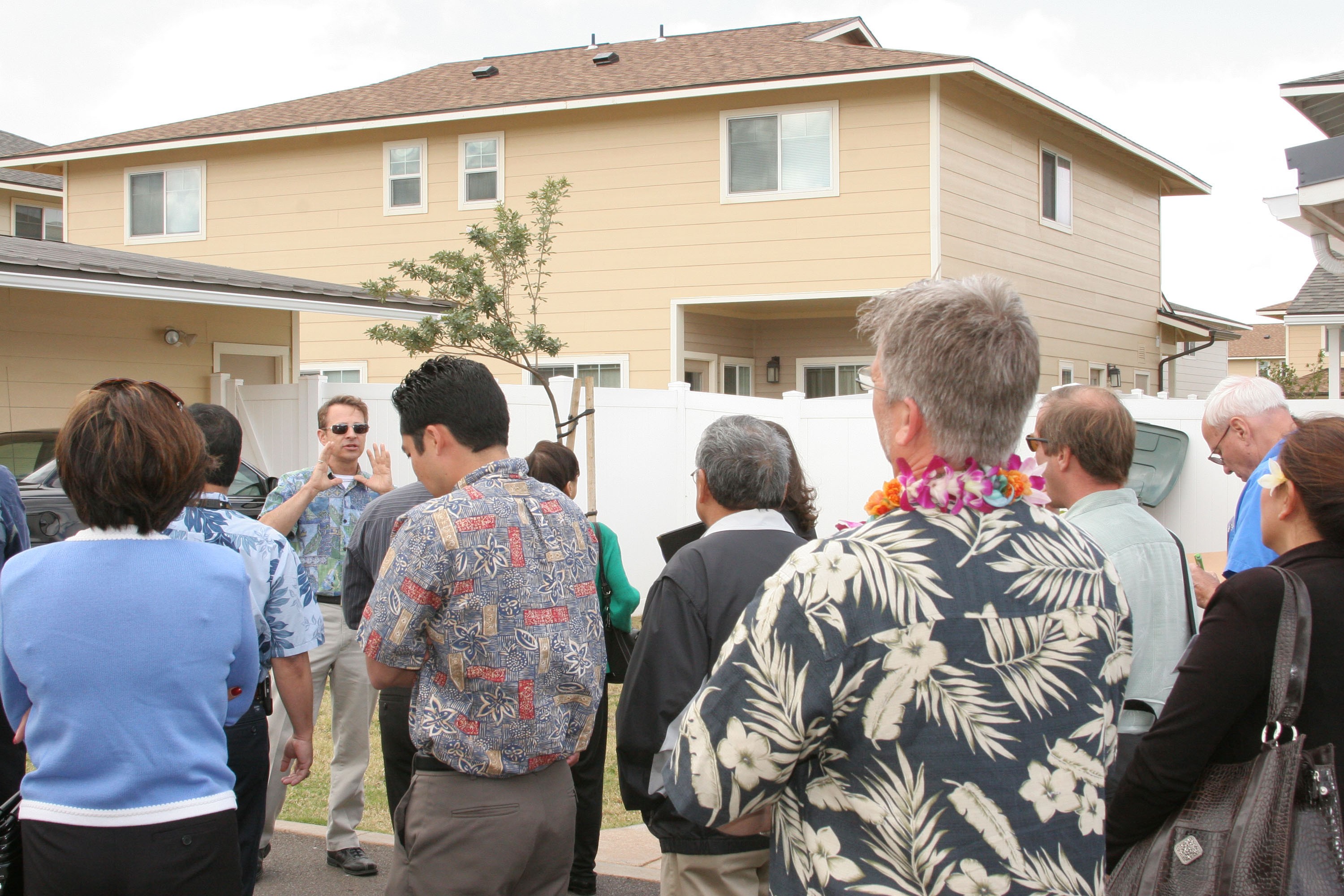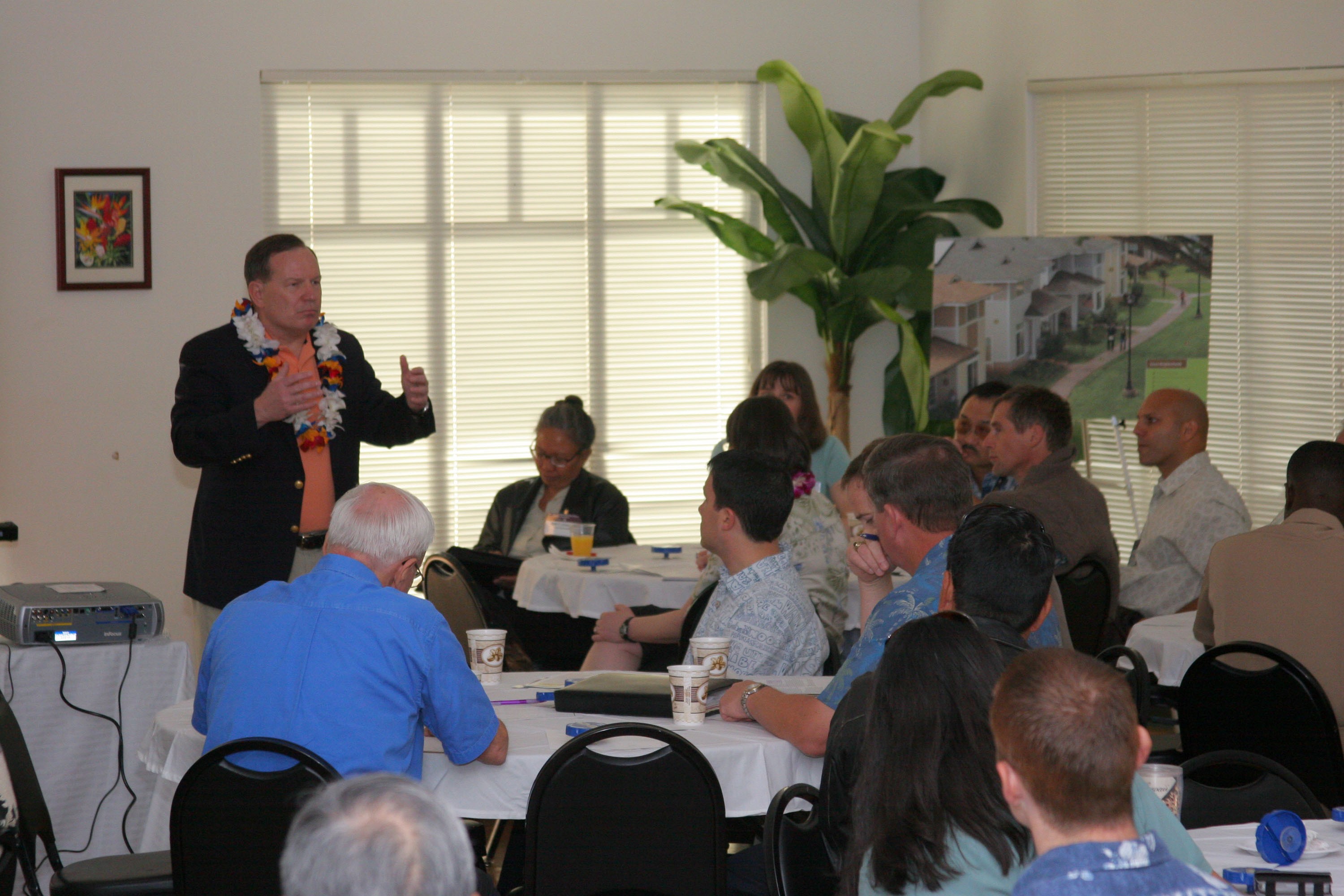SCHOFIELD BARRACKS, Hawaii - Military installations across the nation are fast becoming the leaders in energy efficiency and, in some instances, an incubator for sustainable technologies.
More than 60 people representing nearly 30 organizations shared technology solutions and ideas with leaders from the Department of Defense (DoD) and private sector at the "Sustainable Installations Information Exchange: Hawaii Military Initiatives" meeting, Feb. 27.
The occasion was hosted by the National Defense Center for Energy and Environment (NDCEE) and developer Actus Lend Lease.
Keynote speakers, Tad Davis, deputy assistant secretary of the Army for Environment, Safety and Occupational Health (DASA-ESH), and DoD executive agent for NDCEE, and Col. Howard Killian, deputy director, Installation Management Command-Pacific, helped set the agenda for the daylong seminar.
Davis emphasized the importance of sustainability initiatives across DoD operations and encouraged government and private sector organizations to continue their collaborative efforts in research and development.
To achieve energy efficiency goals in all areas of public and private sector business, Killian stated we need to realize the primary barriers to our successes.
Citing the book "Hot, Flat and Crowded" by Thomas L. Friedman, Killian said, Americans must take the lead in a global effort to replace wasteful energy practices and develop a strategy for clean energy, energy efficiency and conservation.
Another guest speaker at the event was Dr. Brian Nattrass, internationally acclaimed author and senior corporate adviser on the strategy and execution of sustainability initiatives and corporate responsibility.
His presentation, "Global Metatrends and the Sustainability Imperative," demonstrated how sustainability is central to three major crises we are experiencing today: economic, energy (security) and climate.
Attendees didn't have to look far to see how military installations are leading the way in energy efficiency. All branches of military service on the islands, in partnership with public and private sector organizations, are pursuing major renewable energy projects.
Locally, Army Hawaii Family Housing (AHFH) has partnered with Concurrent Technologies Corporation (CTC) to lead a zero energy housing (ZEH) pilot designed to maximize a resident's well-being while minimizing energy requirements and combining energy-efficient technologies and construction techniques with renewable energy systems (for example, photovoltaics and wind turbines).
Representatives from other installations in Hawaii also presented renewable energyand waste-to-energy projects they are pursuing. The Sustainable Installations Information Exchange served as a great example of how the DoD and the greater community can benefit from public-private partnerships.




Social Sharing